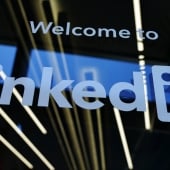-
Discord blocked in Russia and Turkey for spreading illegal content
Discord has been suddenly blocked in Russia and Turkey since yesterday due to illegal activity residing on the platform, leaving legitimate users in those countries unable to visit the website or connect to the service.
- October 09, 2024
- 09:37 AM
 0
0
-
FTC exposes massive surveillance of kids, teens by social media giants
A Federal Trade Commission (FTC) staff report has found that social media and video streaming companies have been engaging in widespread user surveillance, particularly of children and teens, with insufficient privacy protections and earning billions of dollars annually by monetizing their data.
- September 19, 2024
- 01:16 PM
 0
0
-
Sponsored Content

Free shadow SaaS inventory + security insightsDiscover all SaaS accounts ever created by anyone in your org, in minutes, along with insights on security risks and spend. Save time, money and effort by curbing SaaS sprawl and automating tasks like offboarding and user access reviews. Free trial.
-
X faces GDPR complaints for unauthorized use of data for AI training
European privacy advocate NOYB (None of Your Business) has filed nine GDPR complaints about X using the personal data from over 60 million users in Europe to train "Grok," the social media company's large language model.
- August 12, 2024
- 06:47 PM
 1
1
-
Meta nukes massive Instagram sextortion network of 63,000 accounts
Meta has removed 63,000 Instagram accounts from Nigeria that were involved in sextortion scams, including a coordinated network of 2,500 accounts linked to 20 individuals targeting primarily adult men in the United States.
- July 25, 2024
- 12:54 PM
 1
1
-
Facebook ads for Windows desktop themes push info-stealing malware
Cybercriminals use Facebook business pages and advertisements to promote fake Windows themes that infect unsuspecting users with the SYS01 password-stealing malware.
- July 15, 2024
- 09:00 AM
 2
2
-
Mastodon vulnerability allows attackers to take over accounts
Mastodon, the free and open-source decentralized social networking platform, has fixed a critical vulnerability that allows attackers to impersonate and take over any remote account.
- February 03, 2024
- 10:09 AM
 0
0
-
Hackers hijack govt and business accounts on X for crypto scams
Hackers are increasingly targeting verified accounts on X (formerly Twitter) belonging to government and business profiles and marked with 'gold' and 'grey' checkmarks to promote cryptocurrency scams, phishing sites, and sites with crypto drainers.
- January 04, 2024
- 01:40 PM
 2
2
-
FTC warns of ‘staggering’ losses to social media scams since 2021
The Federal Trade Commission says Americans have lost at least $2.7 billion to social media scams since 2021, with the real number likely many times larger due to unreported incidents.
- October 06, 2023
- 01:07 PM
 1
1
-
LinkedIn accounts hacked in widespread hijacking campaign
LinkedIn is being targeted in a wave of account hacks resulting in many accounts being locked out for security reasons or ultimately hijacked by attackers.
- August 15, 2023
- 05:21 PM
 9
9
-
GitHub warns of Lazarus hackers targeting devs with malicious projects
GitHub is warning of a social engineering campaign targeting the accounts of developers in the blockchain, cryptocurrency, online gambling, and cybersecurity sectors to infect their devices with malware.
- July 20, 2023
- 06:48 PM
 0
0
-
Facebook behavioral ads banned by Norwegian privacy watchdog
The Norwegian Data Protection Authority (DPA), the country's data privacy watchdog, has banned behavioral advertising on Meta's Facebook and Instagram social networks.
- July 19, 2023
- 08:12 AM
 1
1
-
Critical TootRoot bug lets attackers hijack Mastodon servers
Mastodon, the free and open-source decentralized social networking platform, has patched four vulnerabilities, including a critical one that allows hackers to create arbitrary files on instance-hosting servers using specially crafted media files.
- July 07, 2023
- 12:40 PM
 0
0
-
Twitter takes down source code leaked online, hunts for downloaders
Twitter has taken down internal source code for its platform and tools that was leaked on GitHub for months. Now it's using a subpoena to search for those who leaked and downloaded its code.
- March 27, 2023
- 10:55 AM
 3
3
-
Social Blade confirms breach after hacker posts stolen user data
Social media analytics platform Social Blade has confirmed they suffered a data breach after its database was breached and put up for sale on a hacking forum.
- December 15, 2022
- 10:29 AM
 0
0
-
New Vivaldi version integrates Mastodon into the browser sidebar
Vivaldi 5.6 was released today with a Mastodon client integrated directly into the browser's sidebar, seamlessly incorporating the rising social media platform in the browser's interface.
- December 07, 2022
- 03:00 AM
 2
2
-
Mastodon now has over 1 million users amid Twitter tensions
Mastodon, the free, open-source, decentralized micro-blogging social media platform, has surpassed a million monthly active users for the first time in its history.
- November 07, 2022
- 11:04 AM
 5
5
-
LinkedIn's new security features combat fake profiles, threat actors
LinkedIn has introduced three new features to fight fake profiles and malicious use of the platform, including a new method to confirm whether a profile is authentic by showing whether it has a verified work email or phone number.
- October 26, 2022
- 02:40 PM
 2
2
-
Russia labels Meta an 'extremist' org, sends legal threats to users
Rosfinmonitoring, Russia's Federal Financial Monitoring Service, has added Meta, the owner of Facebook, Instagram, and WhatsApp, to its list of terrorists and extremists.
- October 11, 2022
- 12:25 PM
 2
2
-
Thousands lured with blue badges in Instagram phishing attack
A new Instagram phishing campaign is underway, attempting to scam users of the popular social media platform by luring them with a blue-badge offer.
- September 01, 2022
- 09:00 AM
 0
0
-
New FFDroider malware steals Facebook, Instagram, Twitter accounts
A new information stealer named FFDroider has emerged, stealing credentials and cookies stored in browsers to hijack victims' social media accounts.
- April 06, 2022
- 03:59 PM
 1
1
























